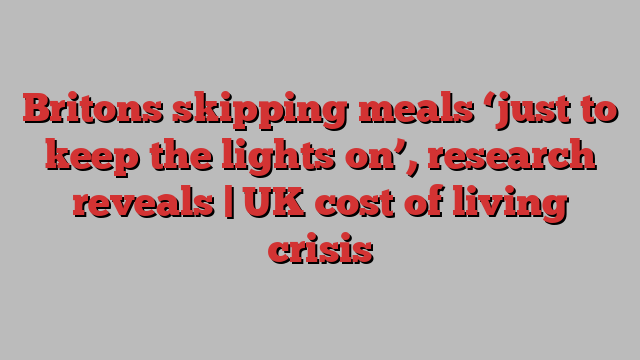
Nearly 11 million people are now behind on their bills while more than 5 million have gone without food, according to new research that reveals Britons are skipping meals “just to keep the lights on”.
An estimated 20% of UK adults, or 10.9 million people, are behind on one or more household bill – up by 3 million since March – according to the Money Advice Trust report.
This figure was much higher, at 45%, for households that received a means-tested benefit, the debt charity said.
The figures, based on an Opinium survey of 2,000 UK adults in August, found 5.6 million have gone without food in the past three months as a result of the cost of living crisis.
This included skipping meals, eating once a day or not eating at all on some days.
Nearly 8 million people had sold a personal or household item to help cover bills, according to the poll.
Joanna Elson, the charity’s chief executive, said the government’s energy price guarantee had brought relief from the fear of future bill increases, but for millions the damage had already been done.
“Many households are already facing impossible choices, such as which meal to skip just to keep the lights on,” said Elson. The charity is calling on the government to use this week’s budget to provide targeted support for those on the lowest incomes.
The charity found that many households had little or no wriggle room left in their budgets to cope with rising prices. It said 41% had already cut all nonessential spending, a figure which was up seven percentage points on its March poll.
The research showed that high energy price rises had already become unaffordable for millions of people, the charity said. About 10.7 million had seen their energy bills rise by £100 or more a month since April.
One in nine said they were already in energy arrears while a similar number said their energy supplier had increased their monthly payments to a level they could not afford.
The jump in energy costs meant more people were borrowing money to try to make ends meet. The charity estimates that more than 15 million people have had to use credit to pay for essentials – an increase of 2.1 million since March 2022 – while one in 10 have had to borrow money from family or friends.

